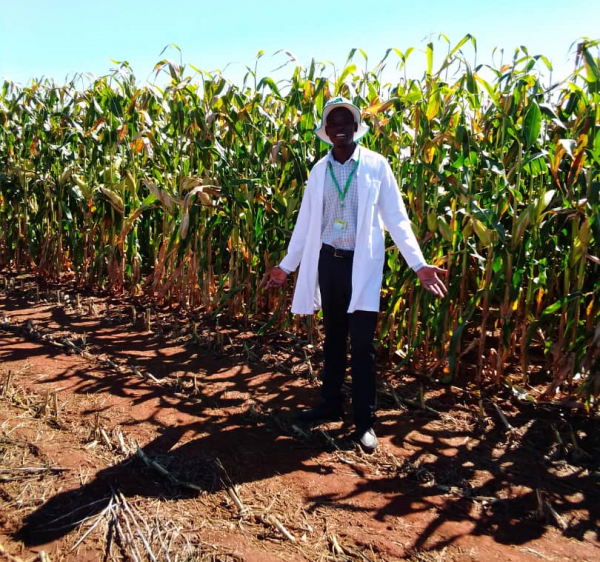By Hwande Sheunesu ,Gokwe Nembudziya, Zimbabwe
The implementation of Climate smart agriculture, Pfumbudza Intwasa farming, command agriculture that is for both field crops and livestock has seen a mega boost in national food security .
However a lot is to be done to bring economic growth and development as well as to improve the standard of living. There is need for a revisitation to the recent input allocation strategy where a farmer could sign an affidavit and acquire inputs using someone’s offer letter , for example the owner of the offer letter would have inputs allocated to his/her 6hacter land while two or more farmers are also issued inputs equal to the land owner , meaning to say the other twelve hacters are just in the air so at the end of the day inputs for 18 hacters will be allocated to a 6hacter plot that means the chances of 12hacter inputs being sold are very high.
Most farmers with the greatest potential to produce who are scattered around Zimbabwe’s remote areas lacked access to inputs while gamblers were fully equipped and they sold the inputs at very low prices in the streets. I suggest there should be a solid follow up program so that those who under utilised the inputs will pay the promised collaterals. One’s failure in 2020-2021 Agricultural season cannot be subjected to drought but to other factors like fraud and poor management. Before one is allocated inputs it is very good to at list produce a record from three-two previous seasons of submitting his/her crops at GMB.

The extension workers must know their farmers l have witnessed people who get inputs and sell to make quick money then later raise money and buy grain from less privileged farmers who cannot afford transport to Grain Marketing Board . A command contracted farmer sold the inputs to buy photocopy and printing equipment then later opened a shop at a nearby growth point which he run until he managed to save a little amount that managed to buy him three tonnes of maize so that he could cancel his credit with GMB.
Few farmers in communal areas are so naive such that they look at farming business with a pinch of salt, and therefore tend to cling on to traditional ways of farming where one could keep on growing Open Pollinated Varieties (OPVs) for example red cork and eight lines when we have many seed companies in Zimbabwe that are producing improved varieties that are high yielding and suits different ecological zones. Extension services the task is laid ahead of you to educate our esteemed farmers until the majority adopt the pfumbudza concept so that we paint the nation green with improved seeds and enjoy productivity.
A view around many parts of the country Matebeleland provinces has proved that many communal farmers still value livestock only as their sources of draft power and meat, recently the country had a huge blow of the tick born disease THELEIRIOSIS popularly known as January disease and it left many kraals closed. The diseases is not contagious and can be easily prevented by friquent dipping according to prevellence of ticks.
I discovered that most farmers rarely dose small stocks like goats and sheep they instead treat them in the event that they are found sick. DEPARTMENT OF LIVESTOCK PRODUCTION DEVELOPMENT Officers (DLPDOs), VERTERINATY SERVICES and SPECIAL PROTECTION FOR CRUELTY TO ANIMALS (SPCA) should work tirelessly and educate farmers on handling,treating breeding of livestock so that we can restock to produce the best meat quality , eggs, beef products, milk products ,wool and hides that attracts the global village and move with speed towards Zimbabwe’s vision 2030.
You can contact me via wantees05@gmail.com ,If you enjoyed it, share it with a friend who may enjoy it too.








